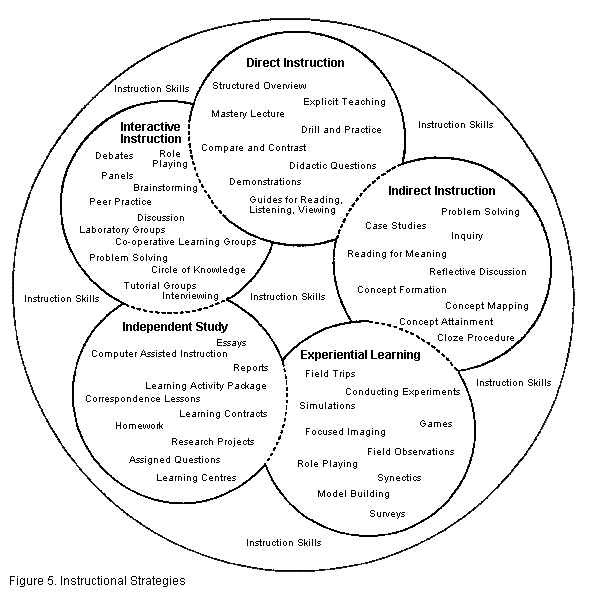
Description: Teaching and Learning
Image copyright: http://teachinglearningresources.pbworks.com/w/page/19919560/Instructional%20Approaches
http://olc.spsd.sk.ca/de/pd/instr/experi.html
Field trips take place outside of the classroom and provide learning opportunities within the community. It provides students with real life interactions and opportunities to visit places they may not visit often.
I think field trips are a great opportunity for students to learn in and from the real world. It provides students to learn and use social skills and how to member of the community. Whether it be to the zoo to learn about animals, history museum to learn about history, or our usual “Sunnyhill” to work on team building activities. This gives students an opportunity to bond with their classmates while learning at the same.
Anticipation Guide
http://olc.spsd.sk.ca/de/pd/instr/strats/anticiguide/index.htm
An anticipation guide is used prior to reading to enhance predictions and to help the students think about what they are going to read. The teacher comes up with statements from the text to elicit a discussion from students. The students should be offered the chance to answer questions with more than a “yes” or “no” response. After reading the students would return to the anticipation guide to see if their opinions have changed.
In my classroom we will preview or analyze a test to identify what we think will happen or what this is going to be about. This provides a great discussion and students get to preview what they will be learning.
Cooperative Learning
http://college.cengage.com/education/pbl/tc/coop.html
Cooperative learning is a strategy that takes a lot of thought by the teacher and should not be overdone. Students are grouped in small cohesive groups to complete an academic project or for a brief 5-minute session. The work within the cooperative learning group could consist of anything the teacher decides as long as it is applied consistently and systematically.
Instructional Strategy – Blogs:
http://www.glencoe.com/sec/teachingtoday/educationupclose.phtml/47-
Blogs are online journals created by anyone to share thoughts and feelings on a wide array of topics. They have had a great impact in education and the way we use blogs to teach and help students to learn.
I have learned so much about blogs throughout my classes. I could use blogs for students to view and complete assignments and I could
also have students work together or create their own blogs as an assignment after learning about a certain topic. Blogs also help students to practice computer and keyboard skills.
Independent Strategy – Journals:
http://www.beesburg.com/edtools/glossary.html
Journals can be worked on daily or at the end of a unit and shares the student’s thoughts and feelings. Journals promote students to reflect on what they just learned, as well as practicing handwriting skills.
I think my students would benefit from using journals. I would have them write a brief journal about what we just learned, what they got out of it, what really engaged them and what did not work for them. This would help me to know what words for them and how I can change my instruction to benefit my students.
Instructional Strategy - Luck of the draw:
http://www.beesburg.com/edtools/glossary.html
Luck of the draw is when all students names are in a container at one name is chosen at the end of the day for that person to present a brief review of what they learned the previous day.
I think while this can give students a little anxiety it can be a very beneficial Instructional Strategy. It makes the students responsible for their learning because they have to be paying attention throughout they day to be able to retell the next day and it makes them responsible because they have to give that information back to their class. Even though most of the students were probably present the previous day, there will be on occasion that a student was out and they can find out what they missed. It will also help them with public speaking and social skills.
Instructional Strategy – Find Someone Who:
http://www.beesburg.com/edtools/glossary.html
Find Someone Who is a variation of a scavenger hunt, where students have to find answers to questions from other students. Students have to ask each other questions to find who has the answer they are looking for.
This is a way to get students out of their seat and actively engaged in the lesson. This also helps them to practice social skills, memory and makes them responsible for their learning.
